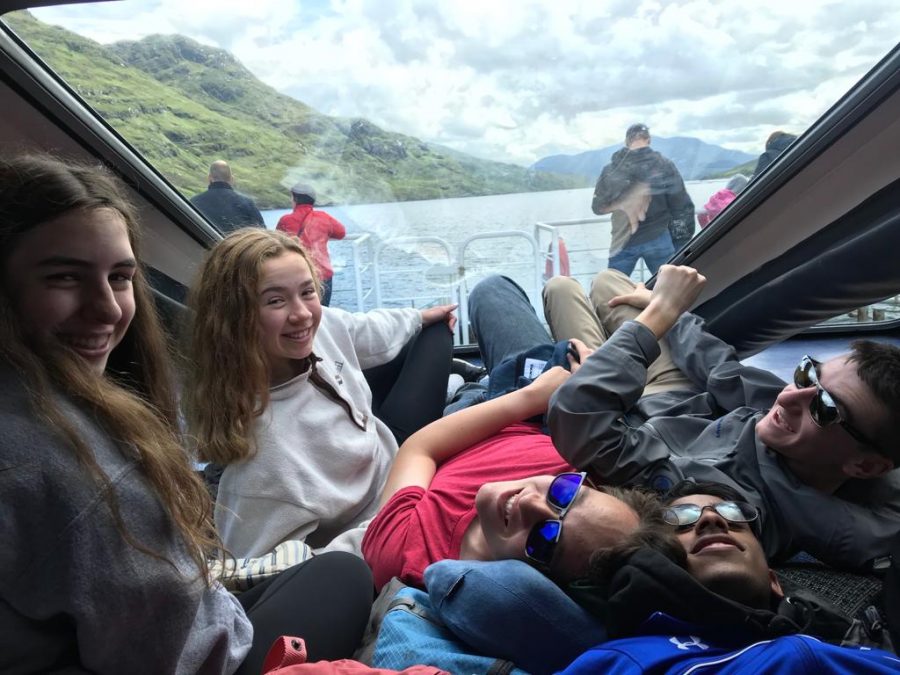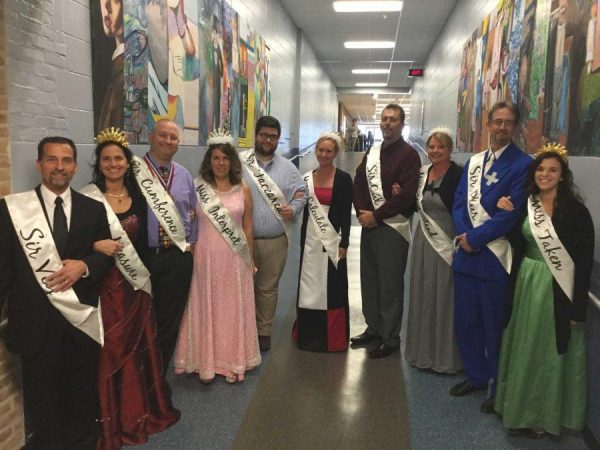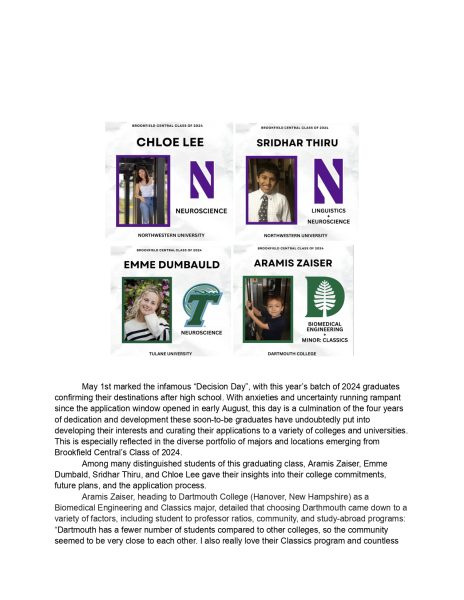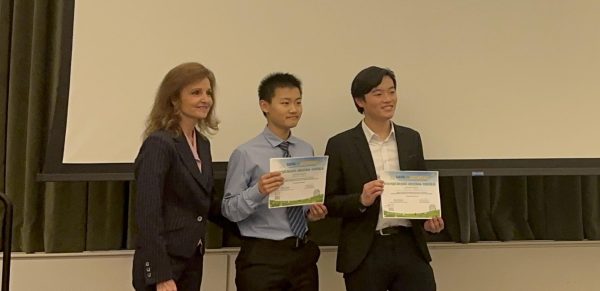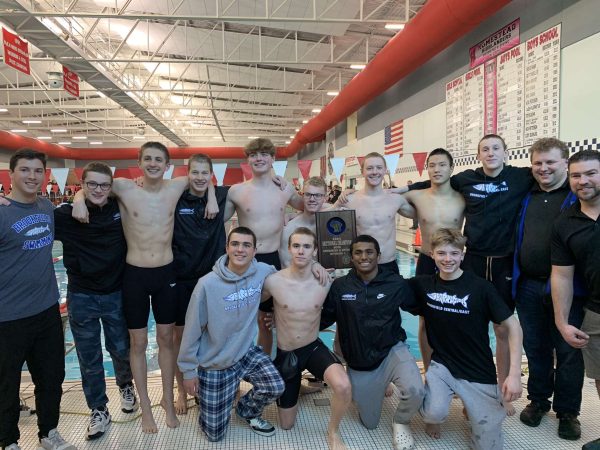Two weeks: from Brookfield to Ireland to Germany
Students immerse in German culture as they explore Germany with host families
From left to right: Emma Basel (’21), Nathan Tan (’21), Praneil Thankavel (’21), and Evan Bagwell (’21). The students take a boat tour of Killary Fjord during their day trip to Connemara, Ireland. They learned about the potato famine during the tour.
One week into summer vacation, eleven BC students traveled to Europe. The group began their journey in Ireland, spending two days in Dublin and Connemara before flying to Frankfurt to meet with their host families with whom students spent the remainder of the two-week trip. “Two weeks is a long time, but it’s the people that I was with that made it really memorable,” stated Katelyn Hodgson (‘22) on the trip to Germany over the summer.
Hodgson spoke of her host brother, Moritz. She had gotten to know him prior to the trip when he came to stay with her family last October. Being able to see him again was one of the main reasons why Hodgson decided to go on the trip. She added that “the idea of going on a trip without your family is kind of cool, especially when you’re starting high school.” Though one of the youngest students on the trip, Hodgson did not feel that age made a significant difference in the experience: “We were [all] just kids from America in Germany, and age wasn’t really a factor in that.”
Being in a foreign environment with a completely different culture can be quite an obstacle; Emma Basel (‘21) expected to have a more challenging time adjusting: “It seemed kind of daunting to be in an unfamiliar country, but [my host family] made it so welcoming, and there were a lot of nice people there.” Basel felt that the most noticeable difference between Germany and America was the transportation. “There’s hardly [any] cars or big roads,” she observed. “Most people walk or bike places.”
Like Hodgson, Basel had previously hosted her host sister, Marlene Matz, back in September, nearly a year before the trip. The two stayed in touch since then through What’s App. Basel expressed that already knowing her host sister made the family stay easier: “I think I just had that connection with them already. It was more comfortable I would say.” Hodgson echoed the sentiment: “There were a lot of people on the trip who didn’t know their host families, and they were just kind of outsiders versus I knew him right away, so it was easier to transition.”
Most of the students stayed in Seligenstadt during the family stay, allowing students and hosts to meet and do activities together. “It’s kind of whatever you want to do,” Hodgson explained, “because your host family is really excited to do something you want to do because you might not ever be in Germany again.” She listed off some of the sites she had visited, including a climbing garden, places she had learned about in class, and Europa-Park, her favorite destination, a Europe-themed amusement park and the largest one in Germany. “Just getting to be with another family and being accepted as part of them was really a neat experience,” Hodgson stated. Hodgson still keeps in touch with her host family and sends her host mother videos to help her improve her English-speaking skills. “[It’s nice to know] that if I needed something or if I went back to Europe, they’d definitely have me again.”
Basel provided some insight to the other side of the coin: playing the role of a host. “It was a little odd at first, but it was really eye-opening because they came and they had a different culture, and it was different for them to adjust to America.” She advised hosts to be mindful of the adjustments their guests go through: “Give them their space, don’t expect them to jump right into things. Often times they’re tired and overwhelmed, and it’s good to just give them some time to themselves.” Hodgson emphasized the importance of being genuine: “You don’t have to try to hide any imperfections in your family because it’s going to come out at some point, and it’s just better to be yourself than someone else for your exchange sibling.”
Both Basel and Hodgson encourage students to give the trip a try. “It’s [an experience] outside of just being in a language class, and [you’re] able to speak the language that you’re learning,” said Hodgson. “It’s just a really cool experience to be able to go to Europe while you’re still in high school.”
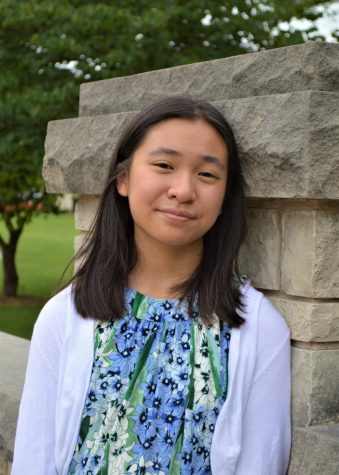
Stephanie Chen is currently a senior at BCHS, the head Editor in Chief of Tyro and is also involved in: Battle of the Books, DECA, Math Club, Science Bowl,...


